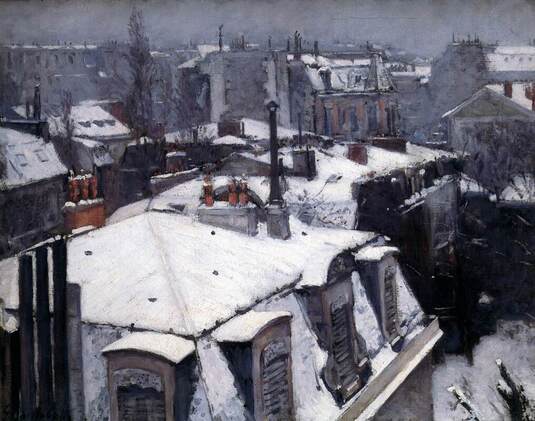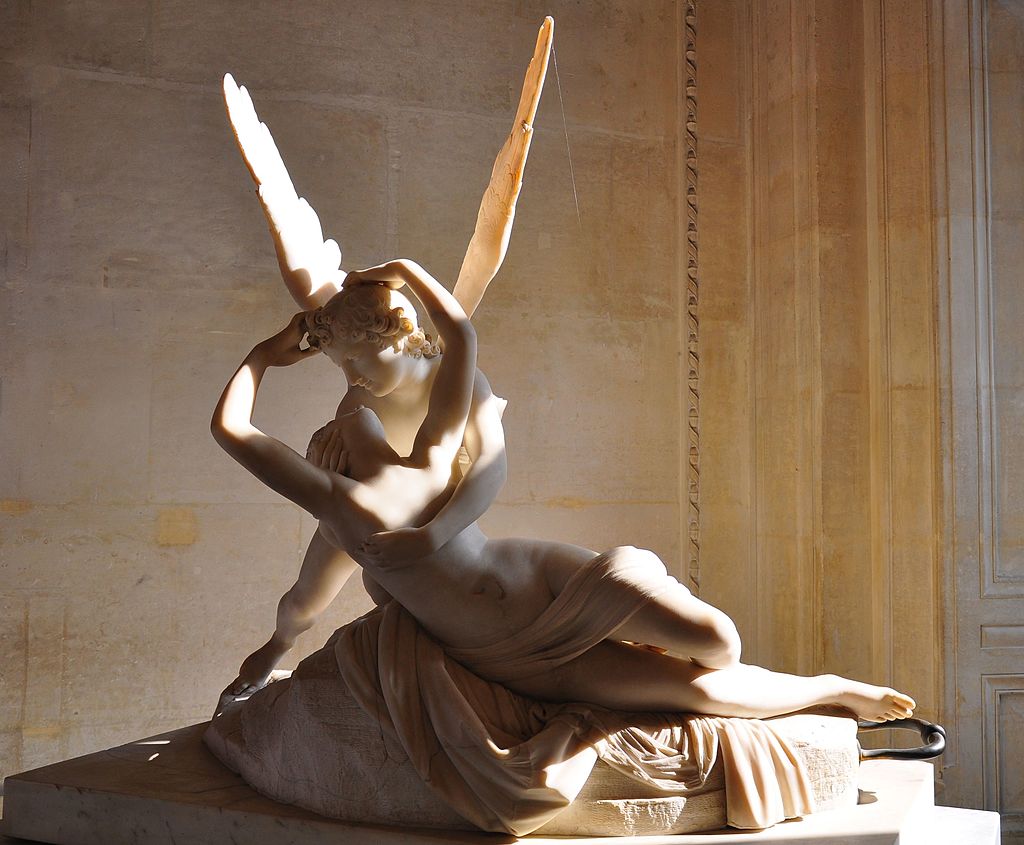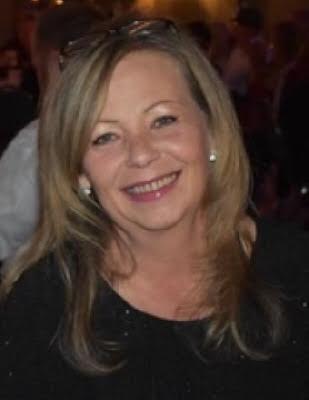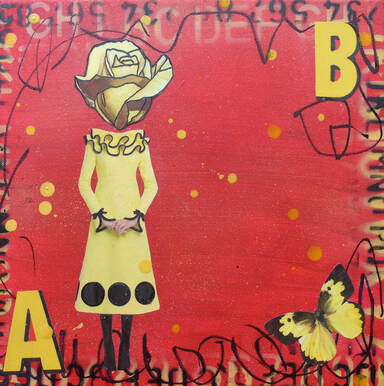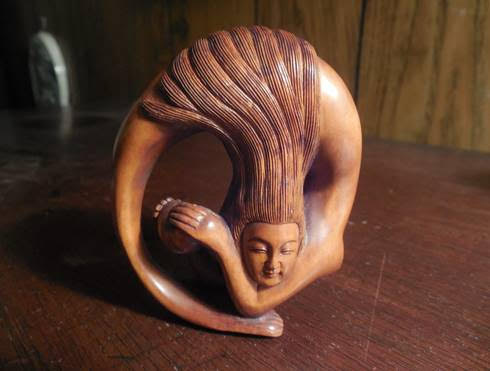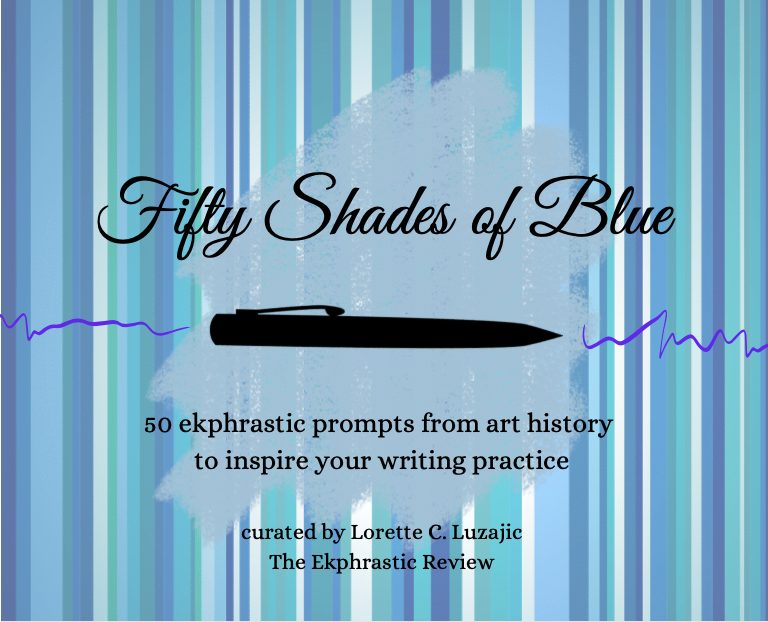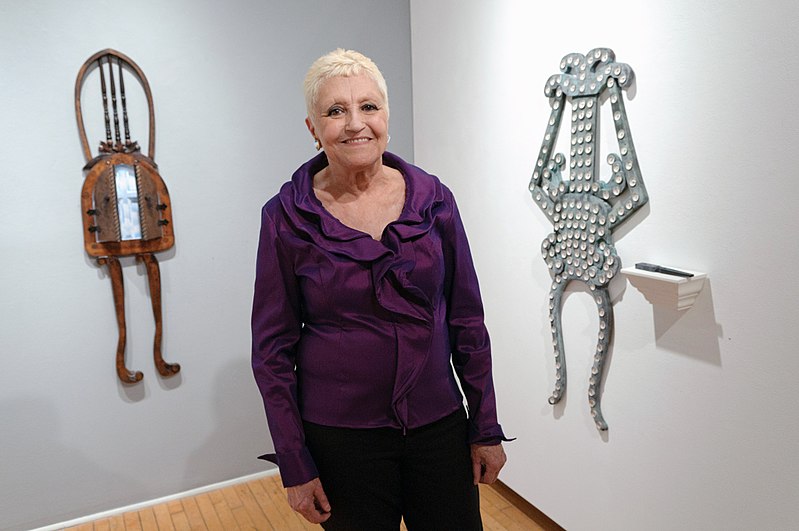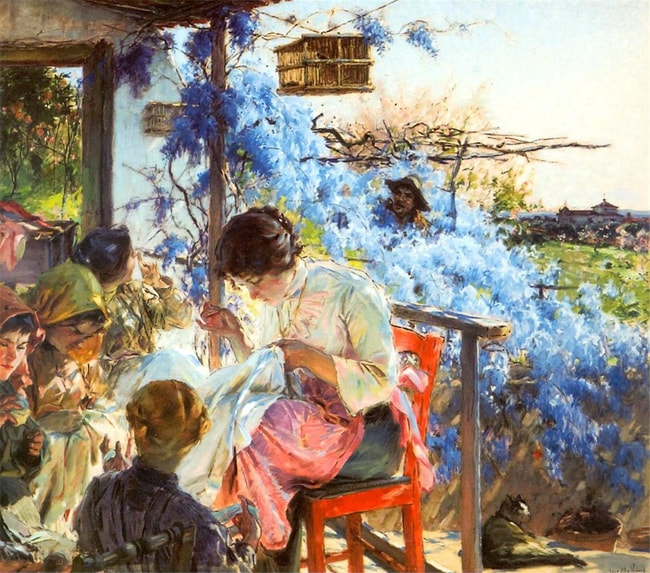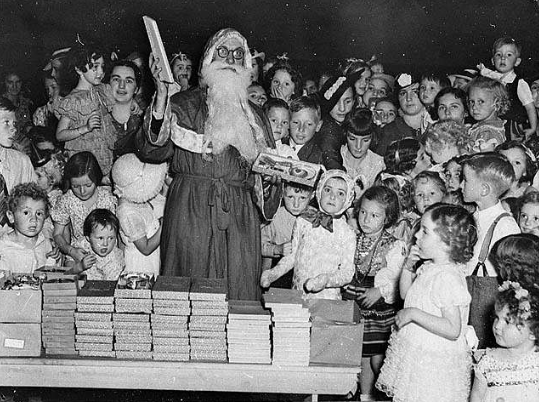|
Another tremendous turn out for this challenge! Read a variety of responses to this painting, here.
0 Comments
All that is Buried Warriors cannot stop contemplating exile although they want only to sit Hand caressing cheek dry eyes closed now because who wants to see What happened since pottery was buried future hints no one holds Without the clay handle of jugs we question such redness such brown cracks So we become cracked earth racked with reasoning an arm flung over our past What we want is such repose on naked knee uncovered by digging Dirty clothes need to be washed thinking won’t find forefathers lost tent pegs But I cannot stop this digging in the dirt to find the thinking Jew displaced In the tomb of burial gifts we learn slowly alongside weapons and donkey bones Sarah Sassoon Sarah Sassoon is a writer of Jewish-Iraqi descent. Her work has appeared or is forthcoming in Michigan Quarterly Review, Lilith, The Roadrunner Review and elsewhere. She is the recipient of the Andrea Moriah Poetry prize, and a runner-up for the Anna Davidson Rosenberg Poetry Award. Her first children’s picture book, Shoham’s Bangle is forthcoming with Kar-Ben Publishing in 2022. She lives in Jerusalem with her husband, four boys and dog. Visit her at [email protected] Eye of the Storm Sometimes I sit at its periphery. Quite singular. Only floating around are lazy cockatoo waspfish. So lazy, so lazy, mistaken for dead leaves. Feuille morte! Charlotte Bronte got me with, “I found no pleasure in the silent trees, the falling fir-cones, the congealed relics of autumn, russet leaves, swept by past winds in heaps, and now stiffened together.” I wipe the irk from the corner of the eye. The eye keeps flickering, and I pry it open to check for any further irk or two wedged or floating somewhere, tiny fibers in the vitreous humor. A mining torch strapped to my forehead beams direct. Sometimes if a deeper cleaning is obligatory or indispensable, I step inside in rain boots lest the aqueous humor in the assembly line is in overtime. Toofans kind of have that reputation. Like ones inside unpretentious hearts and crowded minds. My periscope is always handy in case I get pulled into another attribute where the eye rubbernecks at me and the squall is kind of nameless, undefined, unrefined. This eye is unusual, can’t see with it, can’t place it in a face, can’t gift it to anyone. Can’t take it off. Can’t let it have time out even in an open pandora’s box. It keeps steady at 15-20 blinks per minute. Disturbing. Annoying. Flirting. All but sleeping. Unlike the blissful calm of boats docked in a row in a marina at dawn. Anita Nahal *Feuille morte: Frech for dead leaf * Charlotte Brontë, Jane Eyre, 1847 *Vitreous humor: a colorless, transparent, gel-like substance that fills the space between the lens and the retina within the eye *Aqueous humor; a clear liquid in the front of the eye *Toofan: Hindi word for storm This poem is from Anita's upcoming collection, Espresso Bar. Anita Nahal is an Indian American poet, flash fictionist, children’s writer and columnist. Anita has two books of poetry, one of flash fictions, four for children and three edited anthologies to her credit. Her third book of poetry is What’s wrong with us Kali women, by Kelsay Books, August 2021. Two of her books are prescribed in a course on multiculturalism and immigration at the University of the Utrecht, The Netherlands. Anita teaches at the University of the District of Columbia, Washington DC. Anita is the daughter of Sahitya Akademi award winning Indian novelist, Chaman Nahal and educationist, Sudarshna Nahal. Anita resides in the US with her son, daughter in law and golden doodle. More on her at: https://anitanahal.wixsite.com/anitanahal Canova He points the chisel on the stone and swings the mallet at it, pounding until marble slants, curves, resembling locks of hair, the rounded edges of wings, feathers rippling on a man’s back, disappearing into skin. A quiver at the hip, missing the arrow that pricked the skin and roused Psyche from sleep. He carves, watching his hands and seeing (at times, his nonno’s hands and the workshop) her fingers touch the god’s head, lightly, not wanting to hurt him but still wanting to feel him, real before her. An act he knows she needs to derive pleasure. The marble block has been abated. Still he chips for wrinkles where the bodies fold. Rasps it smooth to be just like skin and sinew for beauty, for the burst of passion he can call true because he is a stonecutter, artista commissionato like his nonno and the father he never met. Stephanie Shi Stephanie Shi is a writer and, more recently, a community manager. Her works have appeared in 11 x 9: Collaborative Poetry from the Philippines and Singapore, The Achieve of, the Mastery: Filipino Poetry and Verse from English, mid-’90s to 2016, Heights, Plural, and High Chair. In 2014, she won the Loyola Schools Award for the Arts for her essays. She is based in the Philippines. In Memoriam to Tammy Daniel The Ekphrastic Review extends sympathy to the family and friends of Tammy Daniel. TER will miss her contributions, which have included two poems: “The Book of Better Things” and “Cracking-Up Under Writer’s Block.” Tammy has been too ill fighting cancer for a few years to keep up with her poetry submissions, but she continued to read, enjoy, and compliment the work of other poets at our review. Her health had a brief rebound last summer, when she submitted her interview with poet Alarie Tennille. Because we appreciate how artists live on in their work, we are pleased to share her work with you again. ** Yellow It is the end of March and last week’s spring tease has left the lone jonquil buck-naked and shivering under the spit then spatter of rain turning snow. But that’s how it is for some. No encore. No repeat performance. One lousy shot to get it right. And while the snow continues to fall like accolades, I can’t help but think of the understudy, waiting in that dark, cold wing of the earth, rehearsing her lines, questioning the director as to why she should even bother to wear yellow. Tammy Daniel First published in I-70 Review Tammy Daniel was a lifelong Missourian and had a knack for all things arts and crafts. She was selected as one of New Voices of 2015 by The Writers Place in Kansas City, MO, and was a finalist in the Davis Grove Haiku and Nature Poetry Contest. Her poetry has appeared in I-70 Review, Touch: The Journal of Healing, The Ekphrastic Review, Anthology on Aging: The Shining Years, Dying Dahlia Review, Wild Goose Poetry Review, Red River Review, Ink Sweat and Tears, Rusty Truck, and the Johnson County Library. Remembering Tammy Daniel, by Alarie Tennille She called me “Yoda.” Few compliments have ever touched me more. Tammy Daniel and I met at work. I was on the Writing Staff, and she was our Administrative Assistant. In 2005, I began sending my poems out into the world after hours. Like most new poets, I was rather obsessed with my passion. Actually, I still am, in part because I’m fueled by every new poet friend I make. I noticed how well Tammy wrote. Can you imagine the pressure of having to write a newsletter for writers? I told her how good she was and began sharing my poetry publications with her. She shyly admitted that she loved to write haiku. “Please share them with me,” I said. Then I urged her to enter a local haiku contest, and she was one of the winners. “No surprise,” I said. Tammy began writing longer, stronger poems, full of grit and tragedy, but also with wicked wit to balance them out. She asked me to critique her, and she was a quick study. Soon I felt I was no longer the mentor, but learning as much from her as she did from me. It wasn’t just about writing. I also chaired a poetry book club that met six times a year. Tammy’s critiques of other poems were always fresh and insightful. That’s why I asked her to do my interview for Three A.M. at the Museum. She didn’t just read a book of poems carefully, she lived in the book for weeks and went back for regular visits. She could toss quotes from them into a conversation – a skill I’ve never mastered. I was lucky to have her in my corner, reviewing my books, proofreading my manuscripts, and spreading love, smiles, and hearty laughter everywhere she went. I can’t stand the thought of Tammy’s poetry being forgotten too soon, so I’ve asked her family to allow me to continue sending it out to publishers. Rest in peace, Tammy. Loved you are. Yoda I wrote this poem about Tammy before I retired in 2012. Why was I chopping garlic at work? For a department salsa contest that I won, the proceeds going to charity. Basics I teach a poet how to separate cloves from a head of garlic. So easy when fingers already know how to pry open fissures beneath the skin, feel their way through paper and take things apart. She welcomes the pungent taste of discovery – even the way the smell stains her hands. “I can’t believe I’m just learning this at my age,” she says, and our thoughts sting with other regrets. Alarie Tennille Evenire From her watery garden, from a green garble of weeds, she emerges in delicate lines of boxwood, oriental grace, frozen in happy acrobatics, caught for a moment as though wheeling through liquid depths. Her agile body, half woman, half fish, forms a fantastic ‘O’ in polished wood, as if to invite entrance to her enchanted treasury of sea silk and sand dollars, of colorful undulating anemone, and finny creatures staring with unexpressive eyes as they dart in and out through castles of coral reefs. Trapped in the nets of morning, of evening, comfortable with fantasy and reality, suspended as she is out of the flux and flow of ocean’s currents, happy in indifference, her long hair winding her body in soft glistening locks, she spins fantastic possibilities enmeshed in seamless transition like a yesterday that found tomorrow in the same shared hour, spackled by the iridescent scales of dream. Ann Power Ann Power is a retired faculty member from The University of Alabama where she worked as coordinator for the Bibliographic Instruction Program, University Libraries. She enjoys writing historical sketches as well as poems based in the kingdoms of magical realism. Her work has appeared in: The Pacific Review (CSU, San Bernardino), The Puckerbrush Review, Limestone, Spillway, The Birmingham Poetry Review, The American Poetry Journal, Dappled Things, Caveat Lector, The Copperfield Review, The Ekphrastic Review, and elsewhere. Don't forget about our current contest, Fifty Shades of Blue. You won't want to miss this collection of fifty outstanding artworks from all over the world, featuring a variety of hues and interpretations on the colour blue. It's our best curated theme collection yet! Win $100! Click here for contest details. Difficult Crossing after an exhibit of Margaret Wharton’s Chair Works in Chicago Your chair in a slatted boat rescues us who sat in rows and learned by rote 1 + 3, and how many crows if four fly away – your seat was too close to the windows. While your pencils lay dulled on the desk, you dreamed of wings, which would one day fan out sunlit from the seamed routine-worn rungs, the tallowed heart of chairs. From that moment, what seemed straight, or flat, what seemed to start with feet and finish square against the shoulder blades, would fall apart… Monica Adams Monica Adams has poems in Blueline, San Diego Poetry Annual, and many more. Soap Opera “I…don’t…be...LIEVE…this…is…HAPPENING!….” Mother’s uncorking one of her torments. Tippy races upstairs the basement stairs, tail tucked between his legs. I race down, two steps at a time. Soap bubbles, ultramarine, foam like frogspawn across the concrete floor and creep up the wall, dampening the bulletin board plastered with household hints and coupons long out of date. A rinse cycle gone amuck from a blockage of dirt, sweat and grime, just like the clog of “issues” and suspicions gumming up my parents’ marriage. Did I mention Mittens, squashed in the street on my birthday? My gangster brother, back in juvie? I’m thinkin’ a curse…. And who uses laundry bluing? Mother dwells in the past, uses a mangle iron to press sheets, makes hospital corners to tuck them in. Father pouts. “I feel like a lodger.” Mother pulls the Maytag’s plug and steadies herself against the door to the garage. Without looking my way, she shoves a mop in my hands, points to the suds, then smacks her hand to her forehead, palm facing the mess. “I shall dwell here no more.” You can see why I’m a theatre major. She hauls herself upstairs, removes an overnight bag, already packed like an expectant mother’s. She places it in the centre of her bed. Father will be home late. Again. Mother will wait till he sees it, then move it back to the closet. Mikki Aronoff Mikki Aronoff’s writing has appeared or is forthcoming in The Ekphrastic Review, Virga, Intima: A Journal of Narrative Medicine, London Reader, SurVision, Rogue Agent Journal, Popshot Quarterly, South Shore Review, The Fortnightly Review, Gentian Journal, Feral: A Journal of Poetry and Art, and elsewhere. A two-time Pushcart nominee, she is also involved in animal advocacy. Editor's note: The image above is a substitute one. This poem was written in response to a vintage Fox/Getty photo from 1931. Click here to see it. We encourage you to take a peek- it's worth viewing the author's source of inspiration. ** Father Christmas Not moppets in pretty snow-globe scenes but little old men whose wrinkled scrunched-up faces sense the glum gloom of December that greys their eyes that sparkle with surprise! when Santa Claus arrives at their Advent window. The local pauper plays his festive role consoling of spirit rich of heart delivering with a glad hand from the packed sack on his back clementines and chocolates trinkets to tinker with cloth animals stuffed and stitched for charity. The five young boys reach for his toys and affection while the toddler paws his red-and-white suit clings to him to feel if he is real and he is. Father Christmas smiles beneath his long white beard when he hears the urchins thank him for his lavish and humble gifts that bring peace and joy to the orphanage that he will revisit next Christmas Eve when he will adopt them or so they imagine their eyes twinkling like the star of Bethlehem. Tanya Adèle Koehnke Tanya Adèle Koehnke is a member of The Ontario Poetry Society (T.O.P.S.) and the Scarborough Poetry Club. Tanya's poems appear in The Ekphrastic Review; The Ekphrastic World Anthology 2020; The Canvas; Big Art Book; Canadian Woman Studies; Foreplay: An Anthology of Word Sonnets; Tea-Ku: Poems About Tea; Grid Poems: A Guide and Workbook; and other publications. Tanya taught English at several post-secondary institutions in Toronto. Tanya also has a background in arts journalism. |
The Ekphrastic Review
COOKIES/PRIVACY
This site uses cookies to deliver your best navigation experience this time and next. Continuing here means you consent to cookies. Thank you. Join us on Facebook:
July 2024
|
